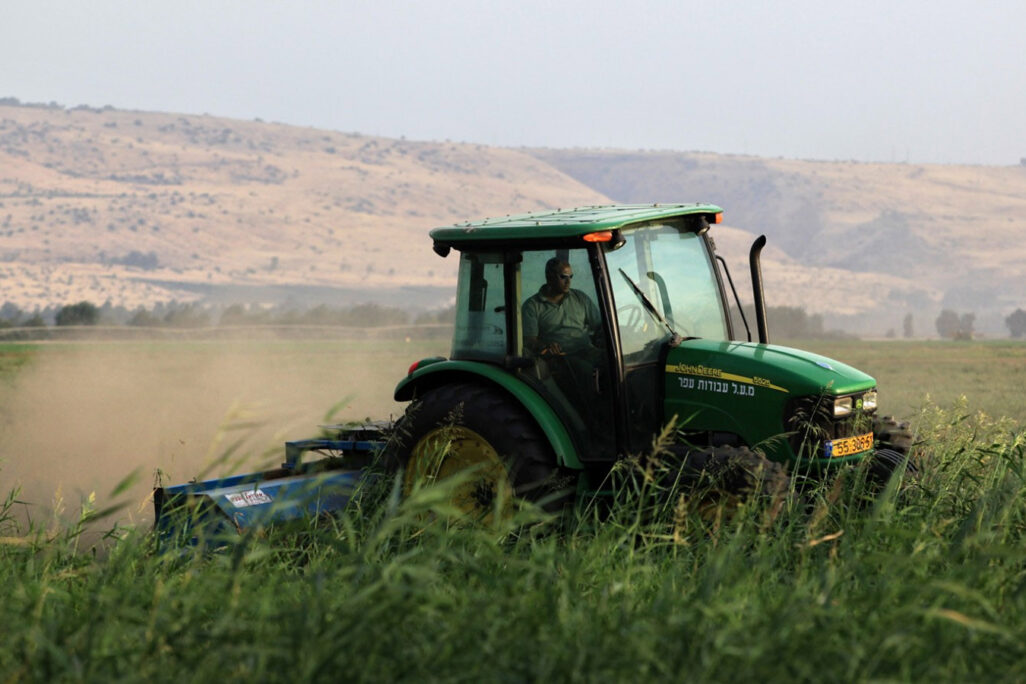
“There are people who, from the day they were born, know how to live only by touching the ground, and know that if you invest in it, it will pay you back a thousand times over,” says Shula Rokach (68), who runs the Rokach farm in Moshav Sdei Hemed along with her husband, Eli (73).
The couple, who have been cultivating the farm for 53 years, now tell a significantly bleaker story when it comes to farmers’ ability to reap profits, especially in light of the ongoing coronavirus crisis.
The lives of farmers in Israel have become difficult in recent years due to two main factors: the reduction of tariffs on imports of produce from abroad, and the increase in the fees of supermarket chains.
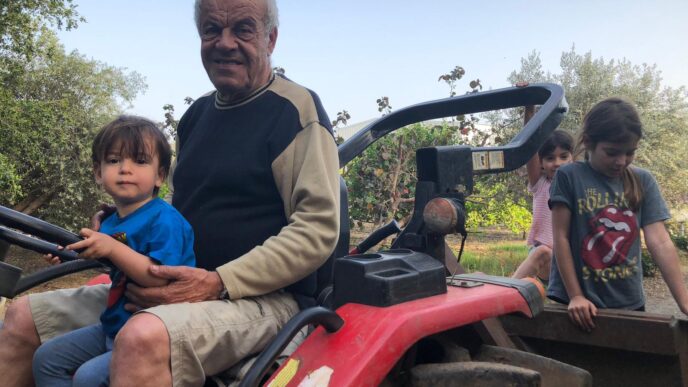
According to many farmers’ organizations, the corona crisis only reaffirms the need to strengthen local agriculture and reduce reliance on international imports, as imports have been seriously threatened by reduced air traffic, threatening all of Israel’s food security.
At a conference held by the Center for Regional Councils and Farmers' Organizations in March, attended by Agriculture Minister Tzachi Hanegbi, many of these organizations aired their grievances against government policy that they claim worsens Israel’s ability to provide for itself.
The neo-liberal bureaucracy has no boundaries, it has lost control. The Ministry of Finance took over the Ministry of Agriculture. For a decade, if not more, Israeli agriculture has been hit hard
Reports also showed that projections of food shortages in Israel due to the corona crisis are unfounded.
“Agricultural produce in Israel is currently meeting the amount of consumption, there will be no shortage of eggs, chicken, beef or milk. At the same time, we must work to reduce dependence on fresh food imports," said Regional Council Chairman Shai Hajaj.
"Farmers can increase local productivity and reduce dependence on imports. Together, we will build an agricultural produce policy that will ensure the security of fresh food in Israel from now on," Hajaj continued. "From this crisis, we must grow. Israel needs to increase local means of production to ensure food security. The State of Israel needs to reduce its dependence on imports. This crisis we are in only proves how right we have been."
"The neo-liberal bureaucracy has no boundaries, it has lost control. The Ministry of Finance took over the Ministry of Agriculture. For a decade, if not more, Israeli agriculture has been hit hard. Farmers are marathoners, this is not a sprint,” said Yaakov Bachar, chairman of the Association of Kibbutz Economic Organizations.
As well as reinforcing Israel’s economic independence and ability to sustain itself, leaders of the agricultural sector spoke out on the importance of protecting local farmers from supermarket chains’ price gouging. CEO of the Fruit Growers Association, Yaron Belhassan, warns that "the supermarket chains are taking advantage of the corona crisis to threaten unnecessary price increases,” by spreading false forecasts of shortages of vegetables and fruits.
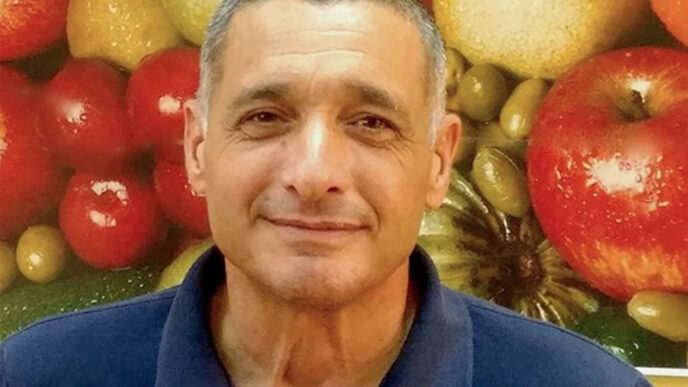
"The growers and farmers prove to the people of Israel that they do not stop in times of crisis and continue to provide high quality produce over time. Therefore, it is outrageous that the supermarket chains are interested in taking advantage of the corona crisis and are threatening to raise the price of food,” Belhassan said. “We guarantee that the supply of fruits and vegetables will continue to replenish over time."
These leaders acknowledge that there may be temporary disruptions in the supply chain, because of labor shortages resulting from the lockdown. Despite this, “a shortage of agricultural produce is not expected,” according Asaf Keret, head of Bereishit Distribution Warehouse in the Golan Heights.
People come here from every part of the country because they want the freshest vegetables closest to the harvest, at fair prices that they know farmers deserve
Local farmers back up claims of exploitation by supermarket chains. In response, many have chosen to turn to selling directly to consumers, without the middle-man intervention and losses that come along with selling through large chains.
Tomi Jakubowski (27) of the 70-year-old Jakubowski farm in Moshav Tzofit, is the youngest of three siblings that currently operate the farm together. Four years ago, at the age of 23, she saw the anger in the eyes of her brother, Dori, who was in charge of running the farm after their father left the profession in despair over his relationship with the supermarket chains.
“They would just steal it. He would sell the broccoli to chains for 2 shekel per kilo, just to get rid of the produce and not throw it away. When I would go to the supermarket to shop, I would see the broccoli with his name for 16 shekels. It was terribly annoying,” she said.
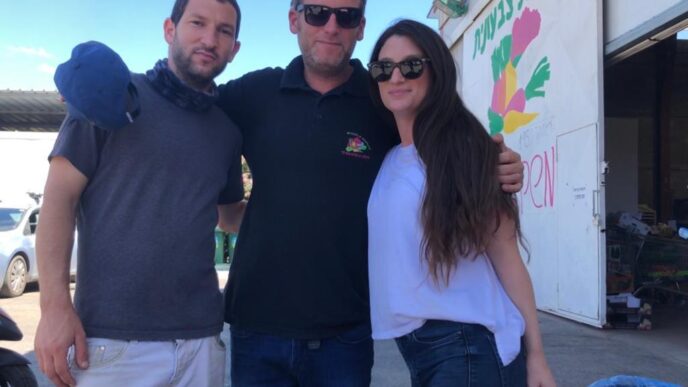
She suggested selling to farmers’ markets, saying that she would personally drive the produce to markets all over the country. Eventually, they opened their own market on the moshav, selling produce, as well as eggs and cheeses, from other local farmers and eventually collaborating with up to 50 farmers from around the country.
“As an ideology, there is nothing here that is not Israeli or out of season,” Jakubowski said. “Every customer with us knows who they are buying from. We leave everything in the crates of that farmer or farm, so that their name and the place from which it comes will always be on it. The produce we sell is very rich and high quality, and its prices are very good for what you get.”

"People come here from every part of the country because they want the freshest vegetables closest to the harvest, which has passed through as few hands as possible, at fair prices that they know farmers deserve,” she continued. “It was very exciting to see that – the rise in business was insane."
We are starting an all out war against the supermarket chains”
Guy Tal (52) from the Tal Farm in Moshav Bitzaron, started the switch to direct sales as early as 2014. His parents bought the farm in the 1980s, and he has run it for 30 years, also offering self-picking services of exotic fruits. He explains that of the 108 farms on his moshav, all but seven or eight have been driven out of business in recent years.
“At first, we exported and also sold to the local markets, and were destroyed. We realized that we were being stolen from everywhere, they would promise to buy pomegranates from me for four shekels per kilo, and I would get 1.80 shekels per kilo at best. It's a loss,” he said. “Suddenly I saw that I could also go in other directions, grow all the special fruits and sell them without being dependent.”
When the lockdown began, Tal’s business began to pick up drastically, with hundreds of orders coming in everyday through their website.Today, Tal Farms sells produce directly from Be'er Sheva to Afula. They also collect produce from other farmers and operate 4 delivery vehicles that travel constantly.
“A week after the first lockdown started, my wife started running the site. We offered same-day or next-day deliveries, and because the supermarket chains had collapsed and people had to wait more than two weeks for delivery, people contacted us,” Tal explained. “It gave us a huge push in sales.”
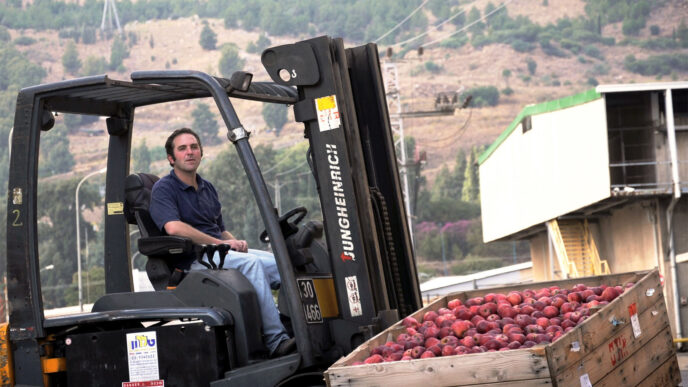
Shula Rokach described a similar experience, explaining how until the start of the corona crisis, their farm sold mainly to local greengrocers and supermarket chains in the Sharon region, along with selling fava beans to local residents.
'We understood that this Passover, at the height of corona, it would be difficult to sell the fava beans. I tried something and took pictures of the beans and avocados, and uploaded them to Facebook. Our phones immediately started ringing, and our yard started to get noisy, people coming and going," Rokach said. “People started coming over and over again, they bought for their whole family, and that way we sold the entire fava bean and avocado harvests.”
After seeing how successful their new business model was, Rokach said that they decided to expand with the help of their children, selling their produce through purchasing groups. People place orders and the Rokachs’ deliver it to a distribution point where buyers pick it up.
"After Passover, we made a decision that we will not take one more box to the wholesale market. We are starting an all out war against the supermarket chains,” Rokach declared.

'We see that it is important for people to really buy from the farmer, really from the person who gets up in the morning and works, it is really important to them that the profit is theirs. That’s the most exciting,” she added, emphasizing that a special bond of solidarity has been built between the farmers and city-dwellers.
At this rate, the State of Israel will have to invest billions to produce a next generation. I put up my hands, I won’t fight anyone.”
Despite their success in selling locally, Tal says that would not allow his children to enter the agriculture industry because of how difficult it is these days to succeed in it.
“There is no way you can make a living from it. I hear this from a lot of farmers, that the children are no longer entering, there is no next generation,” he said. “At this rate, the State of Israel will have to invest billions to produce a next generation. I put up my hands, I won’t fight anyone.”
Jakubowski echoed the sentiments of the sectors’ leaders, saying that produce must be local, both for long term sustainability, and for the feeling of connection with the actual sources of their food.
“To me, the whole corona story really illustrated that we must have food security. We can not depend on other countries for our food,” she said. “A child who sees a tractor with agricultural produce on it realizes that it is actually growing somewhere and that vegetables and fruits do not grow on the shelf. People see the face of the person who grows it, and that is what brings them back here. If you buy at the supermarket, you do not care if it is from here or from Gaza or Jordan or Turkey.”






